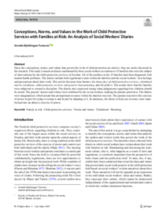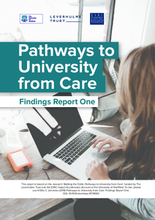Displaying 691 - 700 of 2221
In this video Children in Families social workers share their experience of using a cluster model to enhance the social support available to foster carers in Cambodia whilst reducing the demands placed on organisational resources.
This study examined quality of life and associated factors in a random sample of 225 children and adolescents placed in foster family homes.
In this video, Sreyna and Chenda, two practitioners from Hagar Cambodia, discuss their learning regarding the impact of the care setting on child rehabilitation.
Comprised of 12 videos and accompanying discussion guides, this video series features the learning from practitioners working across a range of care-related programs and practices in Cambodia.
In this video, Children in Families ABLE project practitioners speak to their experience and learning around recruiting foster families to care for children with disabilities, including the types of families to target and how to use role-modeling to address issues of stigma in the community.
This study is based on diaries maintained by three social workers in relation to 15 families that were the subject of interventions by the child protective services in Sweden.
This article reports on an exploratory study about maintaining and supporting the cultural identity of children from culturally and linguistically diverse family backgrounds in foster care placements.
This study sought to analyze the executive functions of a sample of 43 Spanish foster children aged between five and nine years (M = 7.51, SD = 1.29), using a caregiver-reported questionnaire.
The authors of this study conducted research with 234 care experienced university students in England and Wales to explore the factors that promoted access to higher education.
The present review sought to address the following questions: What evidence is there that long-term, family-based out-of-home care (OOHC) has a general, population-wide effect on children’s mental health such that it is generally reparative or generally harmful? Does entry into long-term OOHC affect children’s mental health, as evidenced by prospective changes over the first years in care? And, is the reparative potential of long-term, family-based OOHC moderated by children’s age at entry into care?


